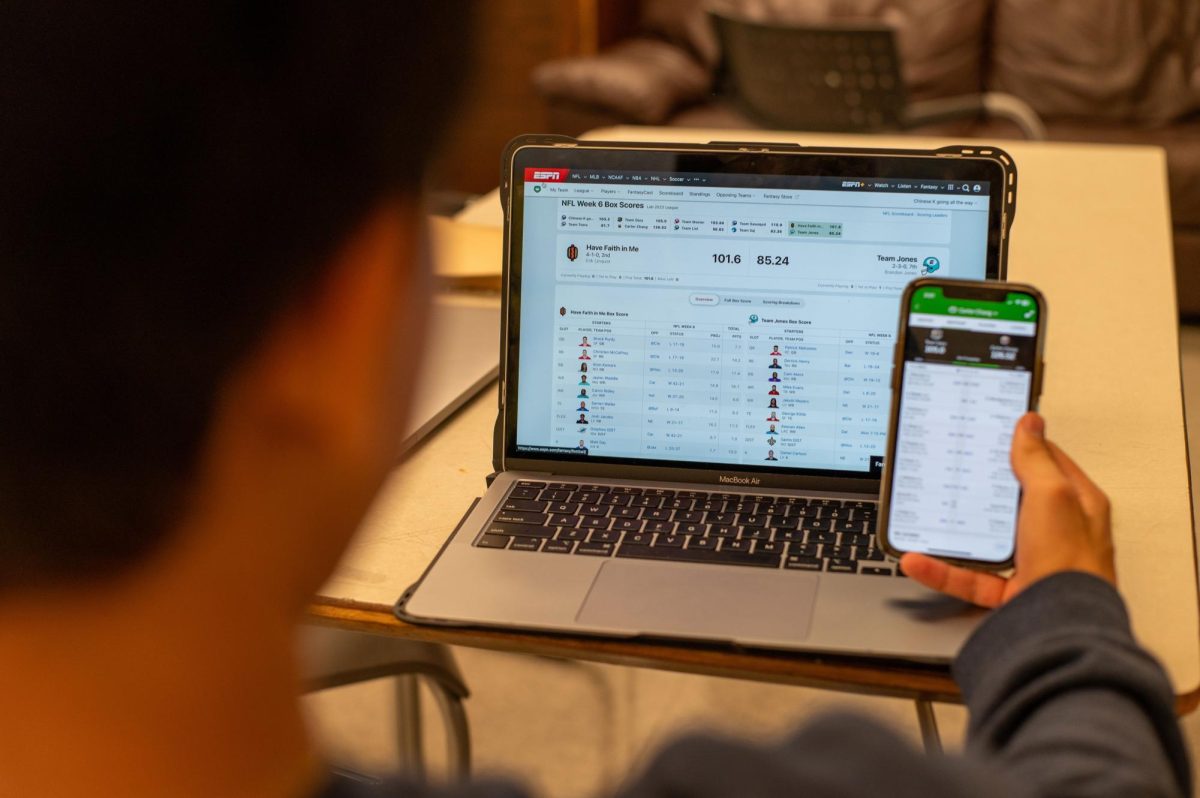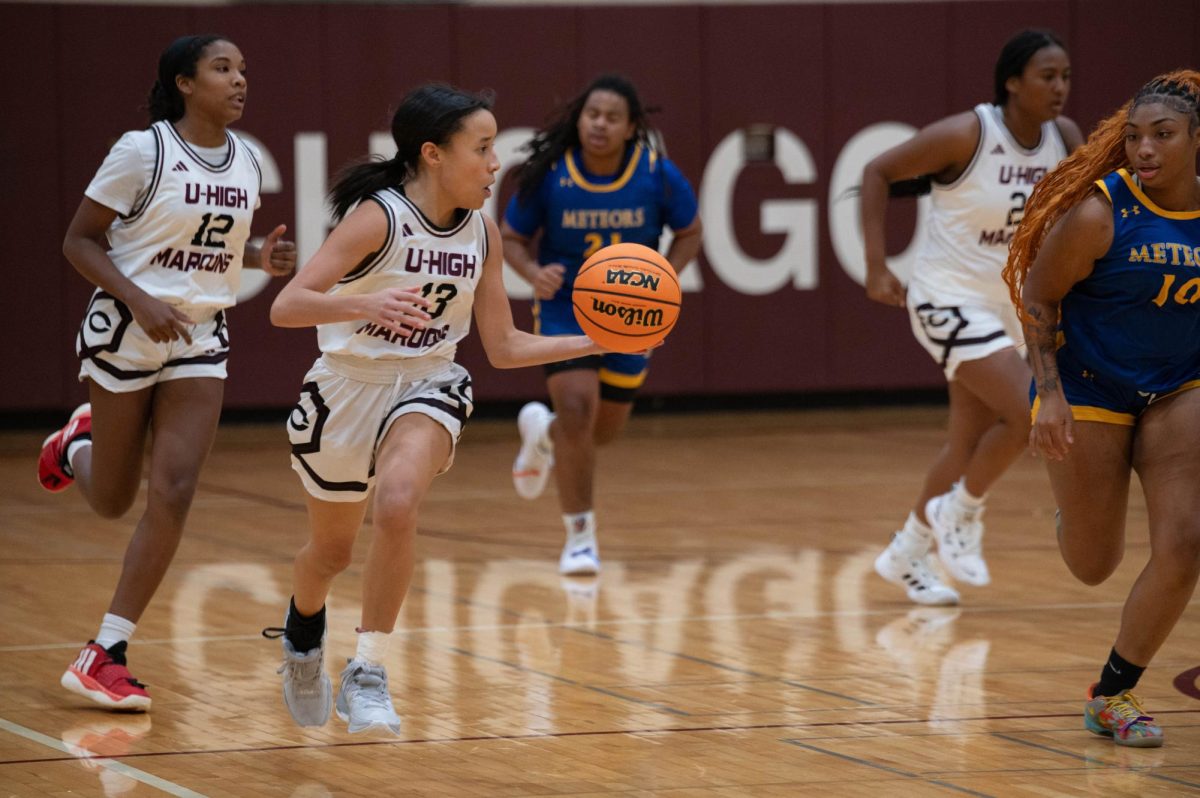Three years ago, during the 2020 NFL championship game between the Kansas City Chiefs and San Francisco 49ers, Adam Tang, then a ninth grader, was focused, closely following each play. He was down many points, banking on his only hope: number 87 on the Chiefs, tight end Travis Kelce.
Eyes glued on the hotel room television, Adam and his family waited, watching. By the end of the game, the final score read 49ers 20, Chiefs 31.
Adam’s enthusiasm in the game was fueled by both a love of watching football and an interest in engaging with his team through an alternate platform — a fantasy football league.
This activity, a skill-based form of entertainment for superfans and casual spectators alike, is a form of connection among Lab students and even faculty.
“I’ve always loved watching football, but it’s sort of just an added thrill,” Adam, now a senior, said. “It creates a reason to watch other teams and I think it just adds to the experience of watching football and playing with your friends — it combines everything.”
Popular platforms include ESPN Fantasy Football, Yahoo Fantasy Sports and NFL Fantasy. While the sites vary in their specific layouts, the premise of the activity is the same: draft players to a virtual team and manage it throughout the season with the hope of securing a win at the championship playoff, the final game at the end of the roughly 12-week season.
“You keep your players each week, but you’re allowed to drop them and pick up a new player or trade with each other,” Adam said. “It’s pretty interactive and less just sitting back and watching.”
Punishments add an additional level of stakes to the leagues, with lower-level ones given to players scoring the least points each week and a final one for the player who ranks the lowest of the whole season. Myles Cobb, a senior who has played in numerous leagues, said they add a degree of fun to playing with friends. Outside of Lab, in more serious leagues, some punishments extend far beyond monetary penalties.
“Basically the loser of the league, so the guy who has the worst fantasy team, has to do a punishment. The punishments can range anywhere from asking out your crush all the way up to joining the military,” he said. “They can get very intense.”
The competitive nature makes playing fantasy football appealing for participants, in leagues both in and outside of Lab. Betting is a large part of the game for some, increasing the risk, and interest, in the experience.
“It can foster connection and can also destroy friendships,” Myles said. “There’s a certain amount of competitiveness you want. It starts to waver when money gets brought into it. It can range anywhere from $20 to $5,000.”
Math teacher Julia Maguire, who can often be seen talking to students about the fantasy season, has been playing for around 14 years. She got involved simply because of her love for sports and enjoys playing in a league with her family.
“I was always interested in sports, not necessarily even football but just being active and interested in sports, talking to people about it,” she said. “A friend and I shared a team that year, and we ended up doing really well, which of course annoyed everybody. We were new on the scene. It was just something fun to engage in.”
For football fans everywhere, fantasy leagues have served as vessels for social connection and engagement with the sport. The sense of community the platforms maintain continuously unites and motivates players.
“Yes, this is a competitive thing, but it’s also completely out of the person’s control. It’s not like I’m competing for my own ability versus someone else,” Ms. Maguire said. “It just makes it fun and fosters a sense of camaraderie. That isn’t personal, which I think is positive all around.”























































